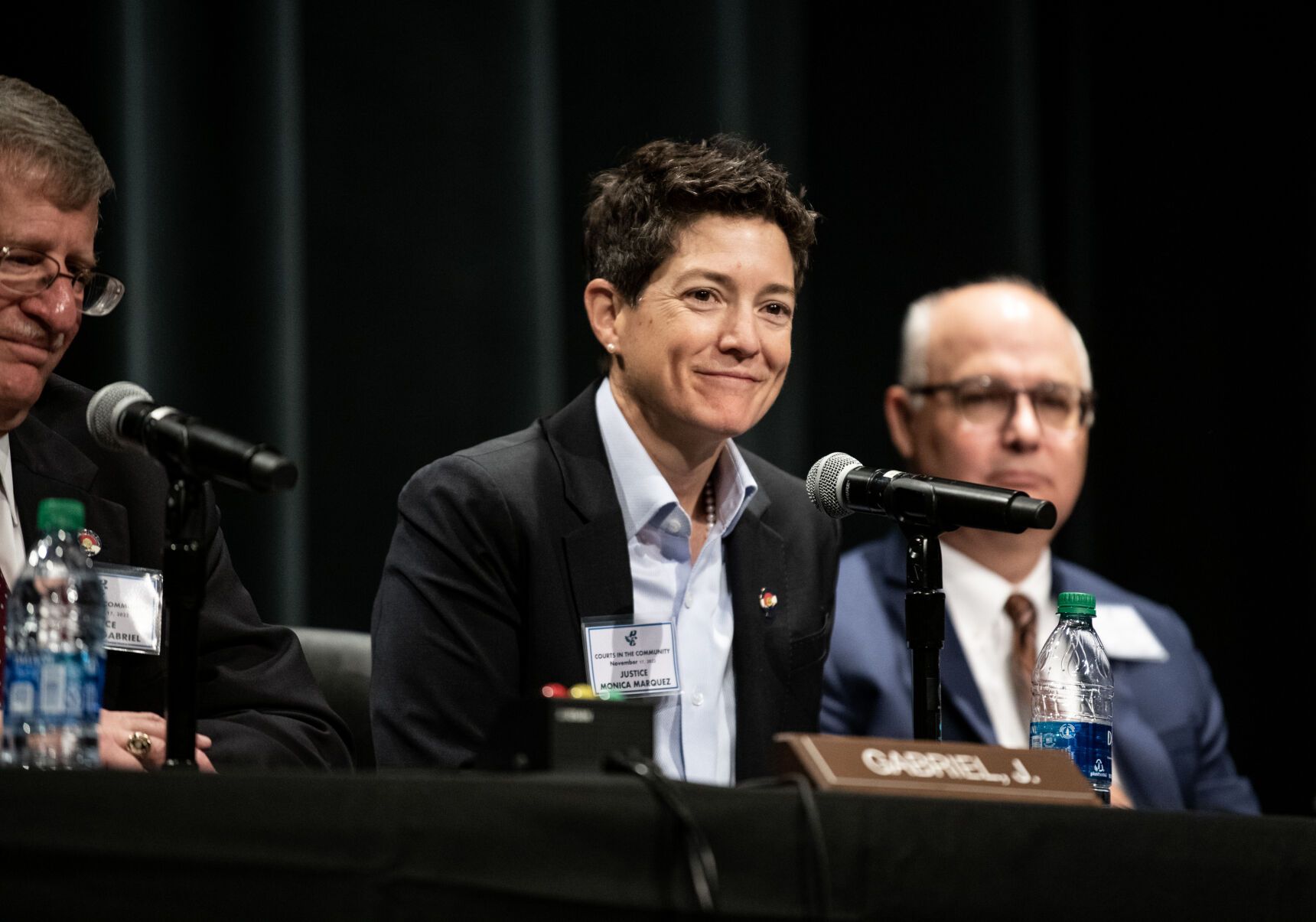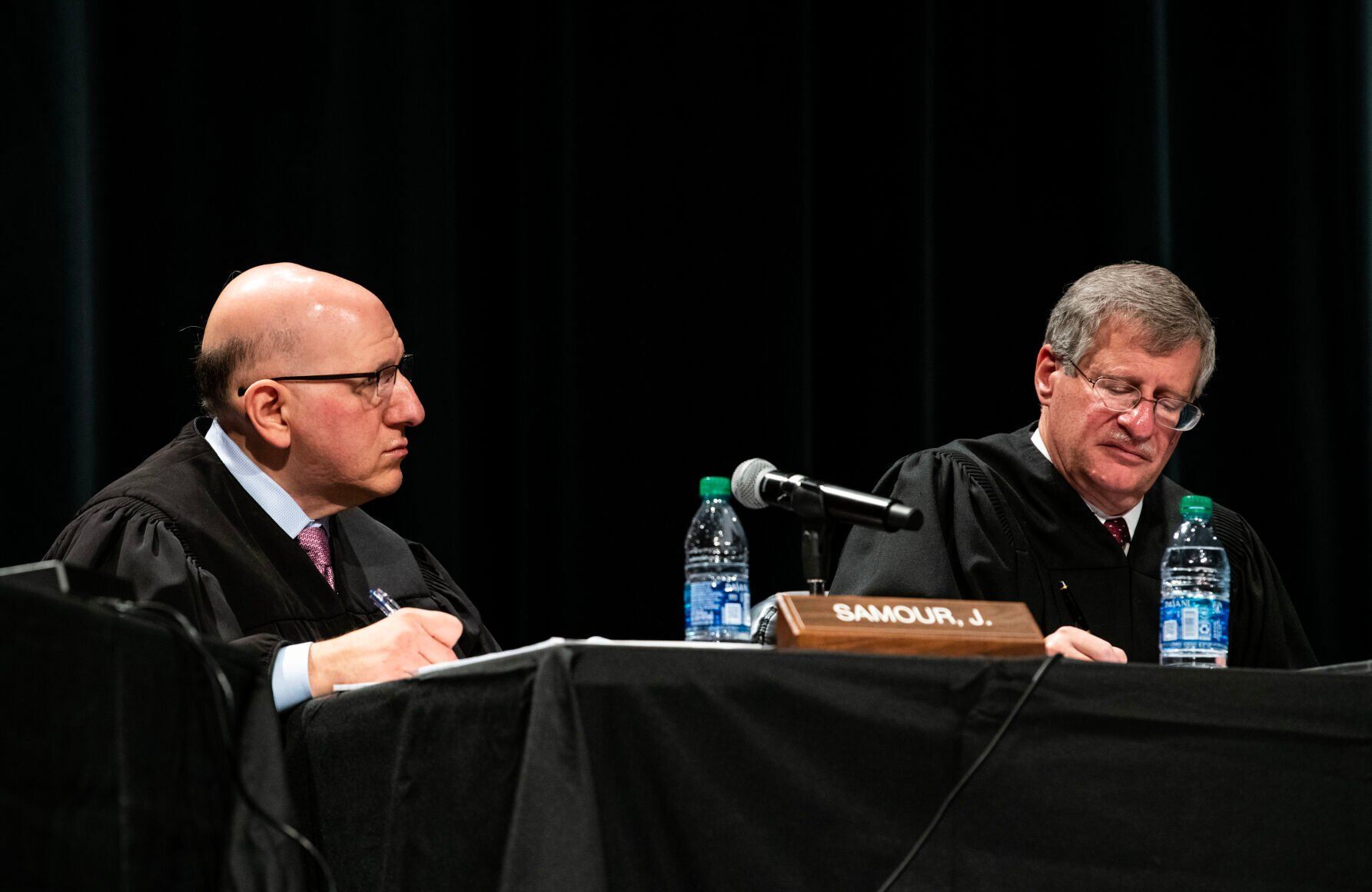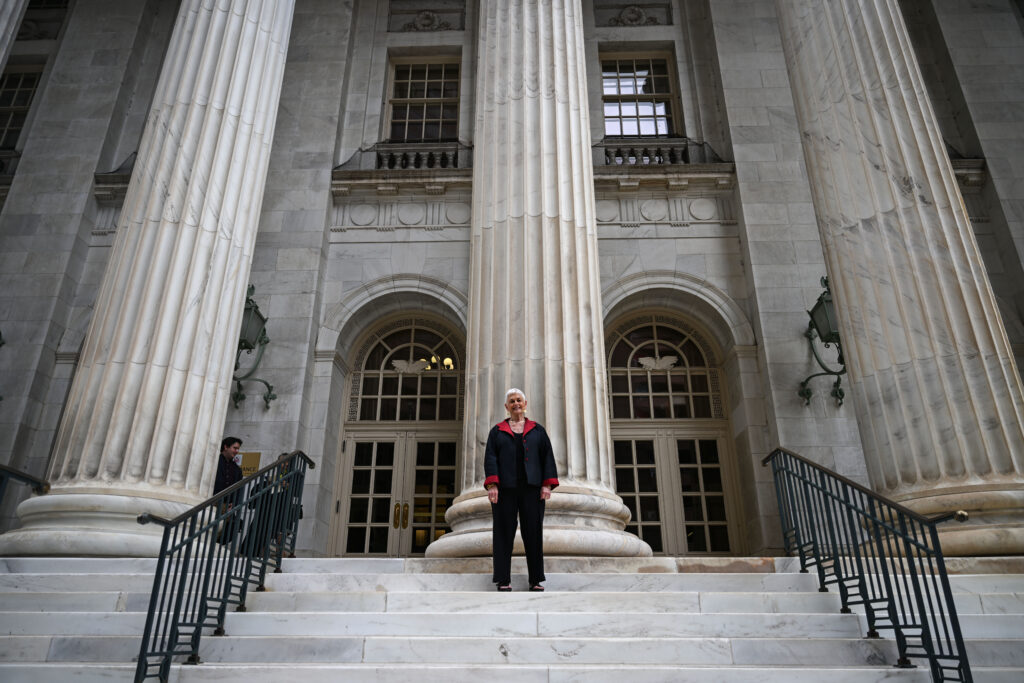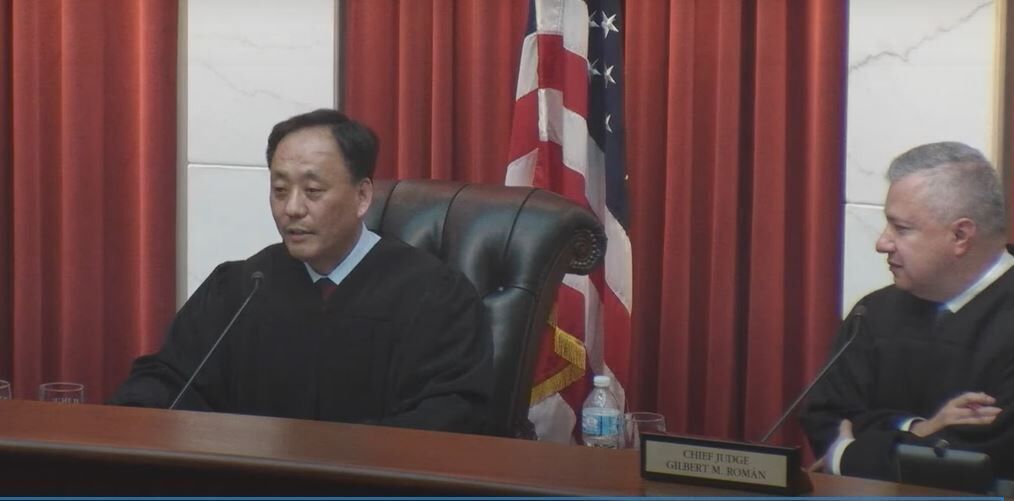State Supreme Court starts term with multiple dissents, 10th Circuit honors longest-serving judge | COURT CRAWL

Welcome to Court Crawl, Colorado Politics’ roundup of news from the third branch of government.
The Colorado Supreme Court returned from its summer break last week with an unusually divided batch of decisions, plus the Denver-based federal appeals court honored its longest-serving member by unveiling a portrait of her.
Welcome back, Supreme Court
• The Supreme Court released six new opinions at the start of its 2025-2026 term. Before getting into those, there’s something interesting to note at a high level: Three of the decisions included dissents. For context, the 2024-2025 term featured 15 cases with dissenting opinions, so we’re at 20% of that number right off the bat.
• Even more intriguing, Chief Justice Monica M. Márquez joined or authored each of the three dissents. Last term? She was in dissent three times total.
• Roughly 80% of the Supreme Court’s decisions were unanimous for the past two terms, so there’s no reason to think things will be different. Still, last September the court also kicked off its term with six new opinions — and all of those were unanimous.

• By 4-2 (with one recusal), the Supreme Court upheld the disbarment of former elected District Attorney Linda Stanley for her inappropriate comments to the media and her investigation of a judge presiding over a high-profile murder case. The dissent believed the presiding disciplinary judge should not have heard her case due to the appearance of a conflict.
• The Supreme Court deemed two Lakewood taxation ordinances void for not complying with the requirements of the Taxpayer’s Bill of Rights.
• Local governments can’t authorize events that exceed state noise limits on private land that they don’t use, the Supreme Court decided.
• By 5-2, the Supreme Court concluded defendants can’t be ordered to repay the money police use to purchase drugs undercover as a form of crime victim restitution.
• Also by 5-2, the justices determined prosecutors don’t have to prove a debit card is actually usable in order to convict someone for the unauthorized possession of a financial device.
• The Supreme Court sided with a medical malpractice victim over a doctor who tried to limit the amount of interest he had to pay on the jury’s damages award.
• A Boulder County judge who left the door open to expert testimony about a defendant’s autism diagnosis is prohibited from allowing any such testimony at trial, the Supreme Court ordered.
• An Arapahoe County judge needs to weigh additional factors before disqualifying an entire law firm from litigating a case, the justices decided.
• The Supreme Court accepted another case on the subject of crime victim restitution, plus it will clarify how defendants are supposed to take advantage of favorable law changes on appeal.

In federal news
• The U.S. Court of Appeals for the 10th Circuit upheld the convictions of Larry Rudolph, a dentist who killed his wife while the two were hunting animals in Africa.
• The 10th Circuit considered whether two parents were entitled to an injunction against a state law and school district policies that enable children to go by their chosen names and gender at school.
• The 10th Circuit heard arguments about whether legislative immunity allows lawmakers to enforce any rules of conduct they wish without consequence.
• Denver asked the 10th Circuit to overturn a jury’s $14 million award to 12 plaintiffs who police injured in their response to the 2020 protests.
Longest-serving judge
• Senior Judge Stephanie K. Seymour is the longest-serving judge on the 10th Circuit, having been appointed 46 years ago. She was the first woman to join the court and also the first to be its chief judge. Last week, the court unveiled a portrait of her (commissioned through privately raised funds) that will hang in the ceremonial courtroom.
• “It has been an honor of a lifetime to have gotten this job and I have to thank Jimmy Carter,” said Seymour, “who set up a merit nominating commission because he wanted women and minorities in the federal courts. And under that procedure and his guidance, I was one of 11 women named to the federal courts of appeals under President Carter.”



Miscellaneous proceedings
• Montezuma County Court Judge Ian P. MacLaren is under a misconduct investigation for, among other things, allegedly holding an unauthorized hearing and then lying to disciplinary officials about his actions.
• On Oct. 3, the Judicial Discipline Rule-Making Committee will hold a hearing to take public comment on a set of proposed interim rules for judicial discipline. People have until Sept. 30 to notify the committee that they want to speak in person, speak virtually or submit a written comment.
• Pursuant to recent legislation, the judicial branch is launching a program to divert certain defendants for evaluation and care when they would otherwise be waiting for a long time to receive competency-restoration services.













